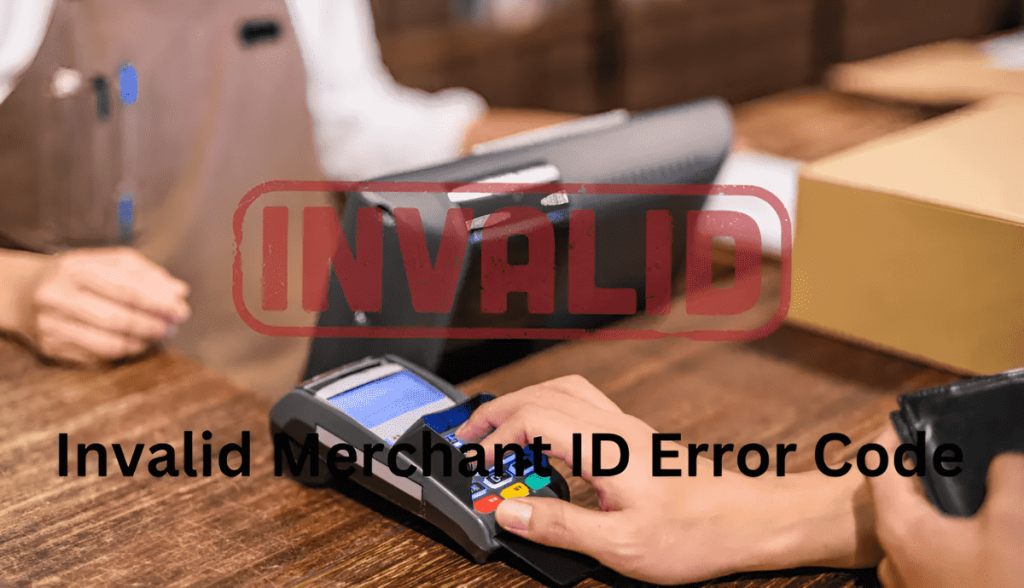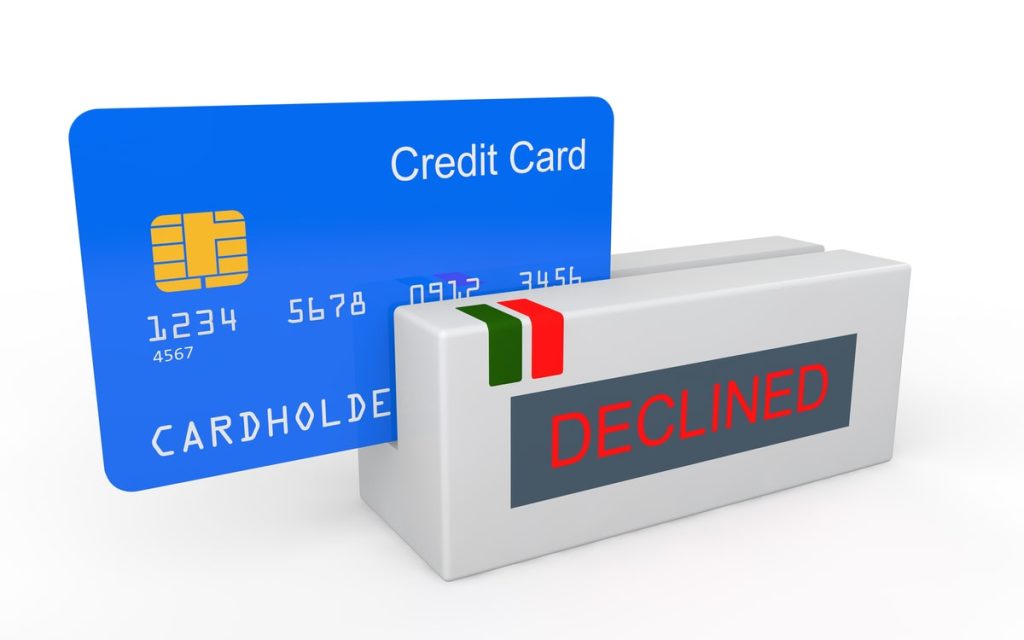Introduction
Credit card declines directly affect business revenue. One common decline is the “Invalid Merchant Decline” (Code 03). This error means the merchant’s account isn’t properly set up or is no longer valid. It halts transactions and interrupts sales, causing serious problems for businesses.
In 2023, 15% of online transactions were declined, with Invalid Merchant Decline being a frequent issue. This article explains the causes, solutions, and prevention strategies for Code 03.
What Is an Invalid Merchant Decline (Code 03)?
An Invalid Merchant Decline means the payment processor or card network can’t verify the merchant’s identity. This happens when the Merchant ID (MID) doesn’t match the system. It often results from account setup errors or changes to the account status.
Causes of Invalid Merchant Declines:
- Merchant account setup errors: Wrong or missing information in the setup.
- Incorrect MID: The MID doesn’t match the payment processor.
- Closed or suspended merchant accounts: Accounts terminated for non-compliance or other reasons.
- Transactions outside of the approved Merchant Category Code (MCC): Processing transactions for unapproved business activities.
- Technical issues with payment gateways: Errors in the system configuration or outdated software.
Example: A retailer with physical and online stores may have different MIDs for each. Using the wrong MID for an eCommerce transaction results in a Code 03 error.
Fact: Over 20% of invalid merchant declines result from technical errors during account setup (Visa).
Common Scenarios Leading to Invalid Merchant Declines
Several operational issues can trigger an invalid merchant decline. Below are the most common ones:
- High-Risk Transactions: Processing transactions outside normal patterns or handling unusually large purchases can raise red flags.
- Exceeding Volume Limits: Merchant accounts have transaction limits. Going beyond the approved volume triggers a decline.
- Unapproved Products or Services: Processing payments for products or services not listed under the approved MCC can cause the issue.
- Card Configuration Issues: Some payment gateways are not configured to accept all card brands (e.g., American Express), leading to declines when processing those cards.

How to Fix Invalid Merchant Declines
Fixing Code 03 declines usually involves correcting account or system issues. Here’s how to resolve them:
- Verify MID and Account Settings: Confirm that the Merchant Identification Number (MID) is correctly configured and linked to the payment processor.
- Reactivate Suspended Accounts: Contact your acquiring bank to resolve any compliance issues and restore your account.
- Audit Merchant Accounts Regularly: Review accounts periodically to spot and fix issues before they result in declines.
- Update Hardware and Software: Ensure that payment terminals and software are up to date to avoid technical errors.
Tip: Merchants processing high-risk or international payments can benefit from partnering with Merchanto.org, an official partner of VISA and MasterCard. Merchanto offers solutions to minimize invalid transactions. Learn more here.
Preventing Invalid Merchant Declines
Preventing declines is crucial for protecting your revenue. Here are steps to minimize the risk:
- Proper Setup and Maintenance of Merchant Accounts: Ensure your merchant account is correctly configured from the start. Errors in the initial setup cause many avoidable declines.
- Fraud Detection Systems: Implement fraud detection systems to monitor suspicious transactions.
- Backup Payment Gateways: Have a backup processor ready to handle transactions if the primary one encounters issues.
Impact on Business Operations
Invalid merchant declines can disrupt operations and lead to lost revenue. Addressing them promptly can mitigate the damage. Below are examples of how different decline codes affect business revenue.
Table 1: Impact of Decline Codes on Revenue
| Decline Code | % of Transactions Affected | Revenue Loss (%) |
|---|---|---|
| Code 03 (Invalid Merchant) | 12% | 7% |
| Code 05 (Do Not Honor) | 30% | 15% |
| Code 54 (Expired Card) | 25% | 10% |
Key Takeaways:
- Merchants lose an average of 7% of their revenue from invalid merchant declines.
- Proactive maintenance and fraud systems can reduce these declines by up to 35% (Mastercard).
Best Practices for Handling Declines
Here are some best practices to manage declines effectively:
- Set Up Decline Notifications: Enable notifications for declined transactions so staff can take immediate action, such as contacting the customer.
- Provide Alternative Payment Methods: Offer multiple payment options, such as Buy Now, Pay Later (BNPL), to capture sales that might otherwise be lost.
- Educate Customers: Teach customers how to avoid declines (e.g., updating expired cards or providing correct payment details).

Fixing Specific Technical Issues
Sometimes, the problem is not the merchant but a technical issue with the payment system. Below are common technical issues and solutions:
- Outdated Hardware: Ensure you are using the latest equipment. Outdated terminals or software can fail to process certain transactions, triggering an invalid merchant decline.
- Payment Gateway Configuration: Make sure your payment gateway is configured to accept all major card networks. For instance, some merchants may only accept Visa and Mastercard but not American Express, resulting in declines when a customer uses that card.
- System Glitches: Work with your payment processor to ensure your system is free from bugs or connectivity issues that could cause merchant validation failures.
Table 2: Common Technical Issues Leading to Invalid Merchant Declines
| Issue | Cause | Solution |
|---|---|---|
| Outdated Payment Terminal | Inability to process certain transactions | Update hardware and software |
| Incorrect Payment Gateway Setup | Merchant configured to accept limited card types | Configure to accept all cards |
| Payment System Glitches | Connectivity or internal system errors | Coordinate with the payment processor to resolve |
Merchant Account Setup: Why It Matters
A well-set-up merchant account is essential for avoiding Code 03 errors. Incorrect or incomplete setup causes a significant percentage of declines. Ensure your MID is properly registered, your payment methods are configured correctly, and your account remains active.
Fact: Nearly 40% of declines result from improper account configuration, making it crucial to verify all setup steps with your payment processor.
Table 3: Merchant Setup Errors vs. Decline Rates
| Setup Error | % of Invalid Merchant Declines Caused |
|---|---|
| Incorrect MID | 25% |
| Incomplete Setup | 15% |
| Unapproved MCC | 10% |
Handling High-Risk Transactions
High-risk transactions can be another common cause of invalid merchant declines. Large purchases or transactions outside the normal business patterns can trigger these errors. To minimize the risk:
- Set Transaction Limits: Limit transaction amounts to what your payment processor can approve without raising red flags.
- Monitor High-Risk Transactions: Use fraud detection tools to identify risky purchases and act before a decline occurs.
Conclusion
Understanding and addressing Invalid Merchant Declines (Code 03) is critical for minimizing disruptions in payment processing. Fixing account setup errors, using fraud detection systems, and maintaining up-to-date hardware are key steps in preventing this error.
Appendix: Comprehensive List of Common Decline Codes
Table 4: List of Common Credit Card Decline Codes and Solutions
| Decline Code | Description | Recommended Action |
|---|---|---|
| Code 01 | Refer to Issuer | Contact issuing bank |
| Code 03 | Invalid Merchant | Verify MID and gateway setup |
| Code 05 | Do Not Honor | Request alternate payment |
| Code 12 | Invalid Transaction | Correct transaction details |
| Code 54 | Expired Card | Update customer card details |
| Code 96 | System Error | Retry or use backup processor |
By addressing invalid merchant declines early, merchants can improve payment acceptance rates, reduce revenue losses, and enhance the overall customer experience. Proper setup and maintenance of merchant accounts, along with the implementation of fraud prevention tools, play a crucial role in avoiding these declines.



